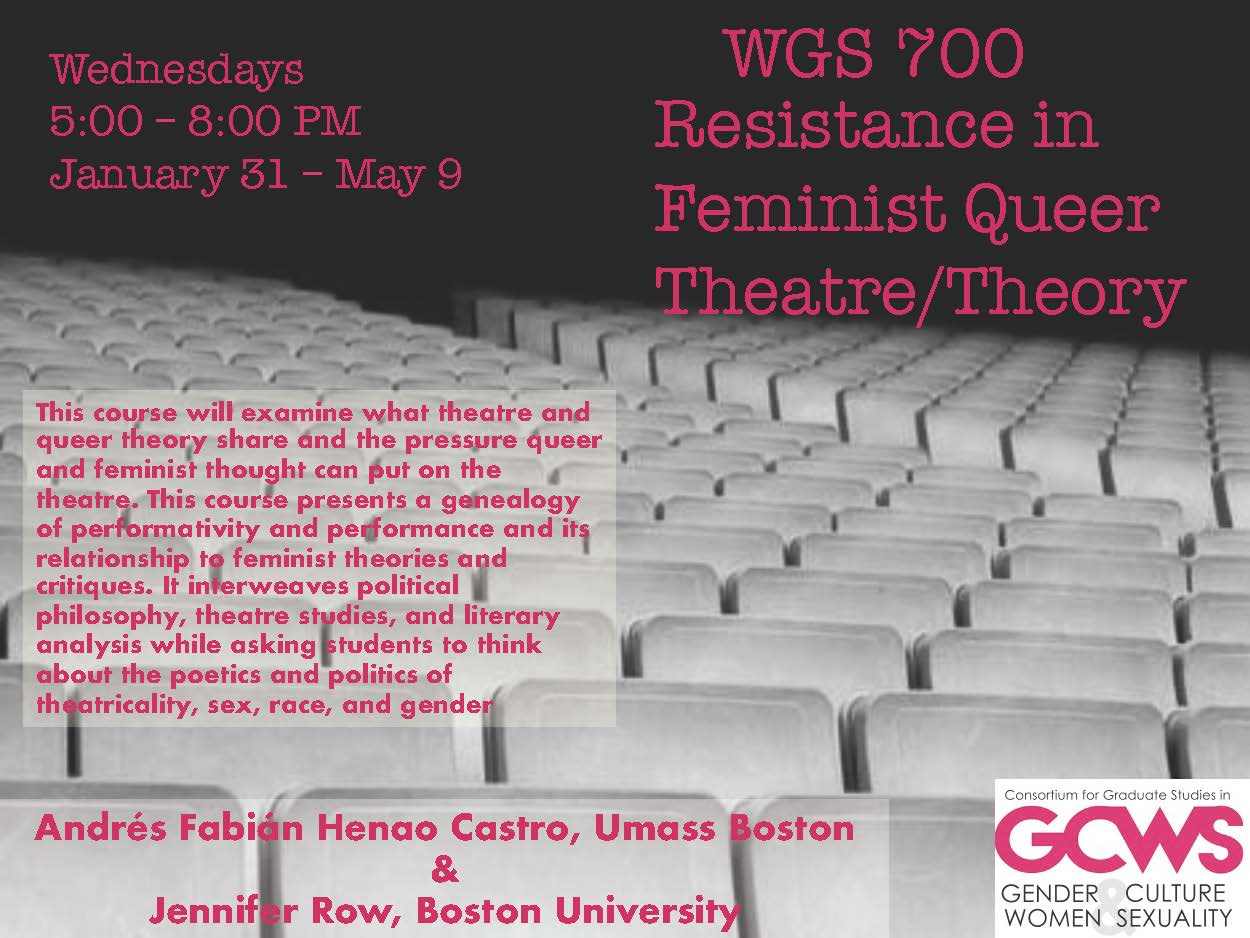Location: MIT
Wednesdays 5:00PM - 8:00PM
January 29, 2018 - May 7, 2018
There is something “spectacular” about revolutions: the drama of barriers being broken, the emotion of the crowd. And for feminist and queer activism in particular, the nature of visibility, spectacle and protest has been integral to gains made by groups such as ACT UP! Or the Combahee Women’s Collective. This course, however, moves beyond the relationship between the social movements and theater to hone in on a critical theory of performance: why and how is theater so important to feminist and queer thought? From Judget Butler’s sense of “performatively” constructed gender to José Estban Munoz’ theory of “disidentification” in queer of color critique, theatricality and performance studies have lent robust paradigms to queer and feminist theory. In other words, one aspect of the course will examine what theater and queer theory share: troubling the nature of representation, investigating mimesis and secondariness, spectacle and masochism. However, another aspect of this course will look at how queer and feminist thought can put pressure on the theater (and vice-versa); how to the theater’s exigencies of action (drama) oppose theories of neutral or passive (minimal, bored) resistance? What type of spectatorship does queer and feminist theater elicit? Can the theater stand as realm of change, or is there a sense in which the “revolution can not be televised?”—that is to say, when the powerful sentiments of the disgruntled, disenfranchised, or dispossessed are captured in aesthetic form, does it lend legibility, genealogy of performativity and performance and its relationship to feminist theories and queer critique. Interweaving political philosophy, theater studies, and literary analysis, the course asks students to think speculatively and creatively about the poetics and politics of theatricality, sex, race, and gender.
Faculty
Andrés Fabián Henao Castro is Assistant Professor of Political Science at UMass Boston. His research deals with the relationships between ancient and contemporary political theory, critical race theory, and de-colonial theory. He is also a member of Performance Philosophy and a columnist for the online journal of political analysis Palabras al Margen.
Jennifer Row is Assistant Professor of French at
Boston University and affiliate faculty with BU’s WGSS program. Her research and teaching interests include early modern theater, queer and feminist theory, and affect theory. Her book project, Queer Velocities: Time, Sex and Biopower on the Early Modern Stage looks at the impact of the newly precise timekeeping technologies and the theater on queer erotics.

